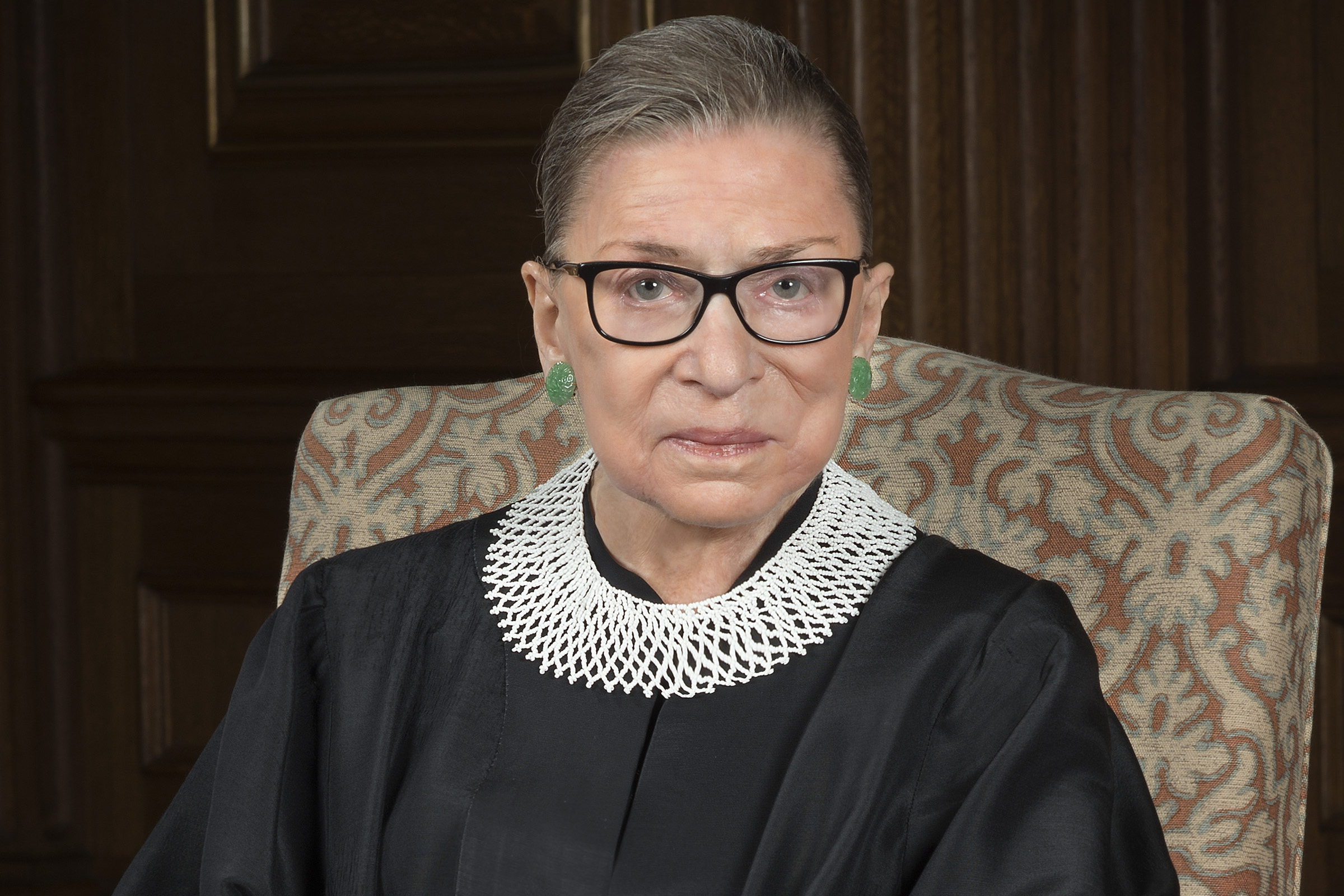Elon Law Dean Luke Bierman, Associate Dean Wendy Scott, and Senior Scholar Steve Friedland reflect on the legacy of the second woman appointed to the U.S. Supreme Court, a jurist who died September 18, 2020, at the age of 87.

STATEMENT BY ELON LAW DEAN LUKE BIERMAN
“Justice Ruth Bader Ginsburg was a giant among giants, her diminutive height belying the size of the legacy she leaves in American jurisprudence. Justice Ginsburg’s reputation for advancing equal justice for all people, regardless of gender, color, creed or orientation, combined with her deep dedication to the rule of law, easily explains how she evolved into a pop culture icon. There have been so few public servants throughout history whose mere initials carry power and reverence: JFK, MLK, and, now, RBG.
“But it is a mistake to view Justice Ginsburg and her legal work through the political prism that all too often defines our national leaders, particularly now in our highly polarized and partisan country. She was a warm and loving wife and mother whose friendship with the late Justice Antonin Scalia – whose jurisprudential views did not always square with those of Justice Ginsburg – illustrates so clearly for us that character matters and that we truly live our best lives when we open our hearts and minds to all people.”

STATEMENT BY ASSOCIATE DEAN WENDY SCOTT
“Justice Ruth Bader Ginsburg has left a lasting legacy in American jurisprudence. Her work as an attorney changed the doctrine of equal protection under the law in the arena of sex discrimination. She continued on the bench to shape protections for the right of women to enter every profession in her seminal majority opinion in United States v. Virginia in 1996; the well being of the mentally disabled in Olmstead v. L.C. in 1999 and accountability for harm to the environment with Friends of the Earth v. Laidlaw in 2000. Equally powerful were the dissents authored by Justice Ginsburg. Her sensitivity to the invidious nature of race discrimination mirrored the thinking of the late Justice Thurgood Marshall as expressed in her dissenting opinion in Shelby County v. Holder in 2013. She dissented in defense of democracy in Bush v. Gore in 2000 and the right of women to equal pay in Ledbetter v. Goodyear Tire in 2007. And her friendship with the late Justice Antonin Scalia taught us that respect for a colleague should transcend difference in judicial philosophy.
“Women and girls across the world will remember her as a role model. Prayers were lifted in many African American congregations for her family and our nation as we hope that her chair on the Court will be filled by someone worthy to carry on the work of interpreting the law and the Constitution to afford liberty and equality for all of us regardless of race, gender, economic status.”

STATEMENT BY PROFESSOR and SENIOR SCHOLAR STEVE FRIEDLAND
“Justice Ruth Bader Ginsburg was an American hero, someone who transcended the boundaries of law to become a role model for many thousands of people. She was a true pioneer. From being first in her class at Columbia Law School, despite having only nine female classmates, to groundbreaking work for gender equality in the law, both before and during her tenure on the U.S. Supreme Court, she was a force to be reckoned with.
“In 1996 in United States v. Virginia, for example, Justice Ginsburg wrote the Court’s opinion declaring that Virginia Military Institute’s male-only admissions policy denied women equal protection under the law and was consequently unconstitutional. It is perhaps the reason she became known as ‘the Notorious RBG’ when she turned 80. Instead of polarizing, she connected, which would explain why her closest friend on the Supreme Court was Justice Antonin Scalia. Her contributions to the rule of law have already become a long-lasting legacy.”



